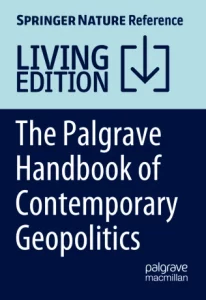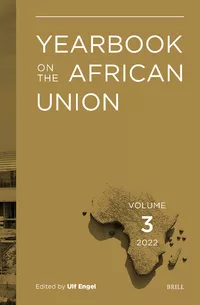New chapter, co-authored with Muhidin Shangwe, in the The Palgrave Handbook of Contemporary Geopolitics

Abstract
East Africa is firmly implicated in global geopolitics. This chapter is grounded in three theoretical premises about geopolitics. We posit that contemporary geopolitics in East Africa (and the “Global South” at large) are infused with enduring patterns of coloniality. Relatedly, geopolitics cannot be grasped in isolation from hierarchical, racialized, and spatialized power structures of the global economy, hence the neologism geopolitics-cum-geoeconomics. Thirdly, contemporary geopolitics in East Africa constitute a complex amalgamation of intraregional political, economic, and security dynamics and the region’s external relations and entanglements. Empirically, the chapter discusses how the COVID-19 pandemic has engendered vaccine geopolitics which have recently culminated in the EU’s efforts to export mRNA production to Rwanda. East Africa’s geopolitics of (in)security are dissected with reference to the regionalized conflict in the Eastern DRC and the growing military footprint of foreign powers in the greater East African region. The chapter furthermore documents repercussions of Russia’s war against Ukraine and problematizes growing foreign interests in East Africa’s “green” – and “not so green” – energy sources and the intensifying scramble for the region’s “critical” minerals. It is shown how infrastructural geopolitics related to East Africa’s integration into competing connectivity initiatives, notably China’s Belt and Road Initiative, the EU’s Global Gateway, and the Partnership for Global Infrastructure and Investment, have further curtailed regional integration. The chapter concludes by reflecting on the likelihood of “non-alignment 2.0” emanating from East Africa. Instead of coordinating a regional and decolonial geopolitical strategy, East African governments have opted to engage in “omni-alignment,” trying to maximize national dividends from the competitive and extractivist logics of contemporary geopolitics-cum-geoeconomics.

